 This week at Retraction Watch featured the retraction of yet another spoof article, and the temporary shutdown of a journal. Here’s what was happening elsewhere: Continue reading Weekend reads: Dissertations for sale, spurious impact factors, the roots of plagiarism
This week at Retraction Watch featured the retraction of yet another spoof article, and the temporary shutdown of a journal. Here’s what was happening elsewhere: Continue reading Weekend reads: Dissertations for sale, spurious impact factors, the roots of plagiarism
Updated: Springer journal on hold for “pattern of inappropriate and compromised peer review”
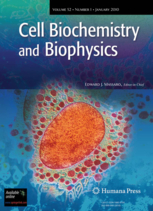 Springer has put a cell biology journal on hold, “effective immediately,” after finding a “pattern of inappropriate and compromised peer review.”
Springer has put a cell biology journal on hold, “effective immediately,” after finding a “pattern of inappropriate and compromised peer review.”
Here’s the brief statement from the publisher: Continue reading Updated: Springer journal on hold for “pattern of inappropriate and compromised peer review”
Manufacturing paper assembled “almost entirely” from someone else’s 1999 thesis
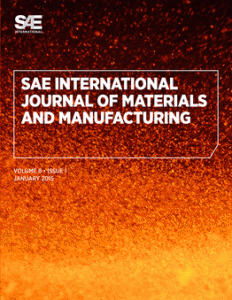 The SAE International Journal of Materials and Manufacturing has retracted a paper after realizing the authors ripped off a 1999 PhD thesis.
The SAE International Journal of Materials and Manufacturing has retracted a paper after realizing the authors ripped off a 1999 PhD thesis.
According to the notice, the 2014 paper — about the best ways to set up manufacturing cells in the automobile industry — “is almost entirely taken” from a Durham University, UK student’s PhD thesis. The thesis, “Computer-aided design of cellular manufacturing layout,” was written by Yue Wu. We were unable to track him down after he left the University of Exeter‘s Manufacturing Enterprise Center.
Here’s the notice for “Reengineering the Layout: A CMS Methodological Approach”: Continue reading Manufacturing paper assembled “almost entirely” from someone else’s 1999 thesis
“Irreconcilable difference of opinion” divides math preprint
 A fight over a paper posted on preprint server arXiv.org has divided two mathematicians.
A fight over a paper posted on preprint server arXiv.org has divided two mathematicians.
The authors initially posted the paper, which looks at the mathematical properties of spheres, in 2013. And that’s when the trouble started.
Apparently, after submitting the paper to a journal and receiving reviewer feedback, co-authors Fabio Tal at the University of São Paulo and Ferry Kwakkel, who got a PhD at the University of Warwick, began to fight over the content of the paper, causing Kwakkel to post his own version, and Tal to withdraw the previous one. “I believe we are severely at odds now,” Tal told Retraction Watch.
In February 2015, Kwakkel, posted a second paper on arXiv.org that he said is his “version” of the 2013 paper, with which it has “substantial text overlap.” Tal requested that the first paper be withdrawn; the note that now appears on “Homogeneous transformation groups of the sphere” cites an “irreconcilable difference of opinion”:
Continue reading “Irreconcilable difference of opinion” divides math preprint
So-kalled research: French sociology journal retracts hoax article
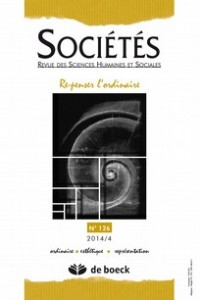 The world, it seems, cannot get enough of Sokal-type hoaxes.
The world, it seems, cannot get enough of Sokal-type hoaxes.
A French journal, Sociétés, has retracted an article allegedly penned by one Jean-Marc Tremblay but actually written by two sociologists, Manuel Quinon and Arnaud Saint-Martin, who spoofed the work of the journal’s editor, Michel Maffesoli.
As the Crooked Timber blog explains, the article, “Automobilités postmodernes: quand l’Autolib’ fait sensation à Paris,” published in the Continue reading So-kalled research: French sociology journal retracts hoax article
Second cell bio retraction from UPitt investigation of tweaked images
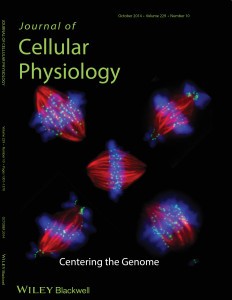 Two researchers, Tong Wu and Chang Han, have lost a second paper as the result of a University of Pittsburgh investigation into image manipulations.
Two researchers, Tong Wu and Chang Han, have lost a second paper as the result of a University of Pittsburgh investigation into image manipulations.
The first retraction, in Journal of Cellular Biochemistry, went live in February. The researchers, currently based at Tulane University, were originally tapped by pseudonymous tipster Juuichi Jigen, who created a website in 2012 to chronicle the allegations.
The blog lists six papers by the pair with supposedly questionable figures. According to Jigen, this latest retraction, in the Journal of Cellular Physiology, contains a figure (2A) that appears to reuse data from another paper, and another figure (3) where the data appear to be manipulated.
Continue reading Second cell bio retraction from UPitt investigation of tweaked images
Yes, we are seeing more attacks on academic freedom: guest post by historian of science and medicine
 We’re pleased to introduce readers to Alice Dreger, a historian of science and medicine at the Medical Humanities and Bioethics Program in Northwestern University’s Feinberg School of Medicine. Her new book is “Galileo’s Middle Finger: Heretics, Activists, and the Search for Justice in Science,” out this week from Penguin Press. Read to the end for a chance to win a free copy.
We’re pleased to introduce readers to Alice Dreger, a historian of science and medicine at the Medical Humanities and Bioethics Program in Northwestern University’s Feinberg School of Medicine. Her new book is “Galileo’s Middle Finger: Heretics, Activists, and the Search for Justice in Science,” out this week from Penguin Press. Read to the end for a chance to win a free copy.
The good news: Policy makers and the public seem to be increasingly taking scientific research seriously. The bad news? People who don’t like researchers’ findings seem to be increasingly coming after researchers and their universities. And some of those people are powerful.
Technically, your university is supposed to protect your academic freedom. In my own university’s faculty handbook, academic freedom is the first topic discussed. But as I’ve learned from my own personal experiences, as well as from eight years studying the experiences of other researchers who have gotten into political hot water, your administration may not always have your back. Continue reading Yes, we are seeing more attacks on academic freedom: guest post by historian of science and medicine
Bielawski and Wiggins up retraction count to five with three in JACS
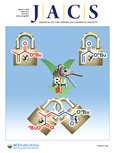 The Journal of the American Chemical Society (JACS) has retracted three articles that had earned expressions of concern by chemistry researchers who were under investigation at the University of Texas, Austin.
The Journal of the American Chemical Society (JACS) has retracted three articles that had earned expressions of concern by chemistry researchers who were under investigation at the University of Texas, Austin.
Kelly Wiggins and Christopher Bielawski have already received two other retractions and several EoCs.
The newly retracted articles have each been cited more than 50 times, according to Thomson Scientific’s Web of Knowledge.
The three papers are: Continue reading Bielawski and Wiggins up retraction count to five with three in JACS
Opaque retraction notice for imaging paper
 Sometimes we run across retraction notices that are vague, and others that are contorted, but we’ve just found one that gets highest marks for being completely inscrutable.
Sometimes we run across retraction notices that are vague, and others that are contorted, but we’ve just found one that gets highest marks for being completely inscrutable.
The article, “Bayes Clustering and Structural Support Vector Machines for Segmentation of Carotid Artery Plaques in Multicontrast MRI,” was written by a group from China and Cambridge University in England — so, we’re thinking language ought not to have been much of a barrier to clear English. It appeared in November 2012 in Computational and Mathematical Methods in Medicine, and describes a way to analyze carotid artery plaque levels in MRI images.
But according to the notice, the technique did not work as planned (or so we think):
